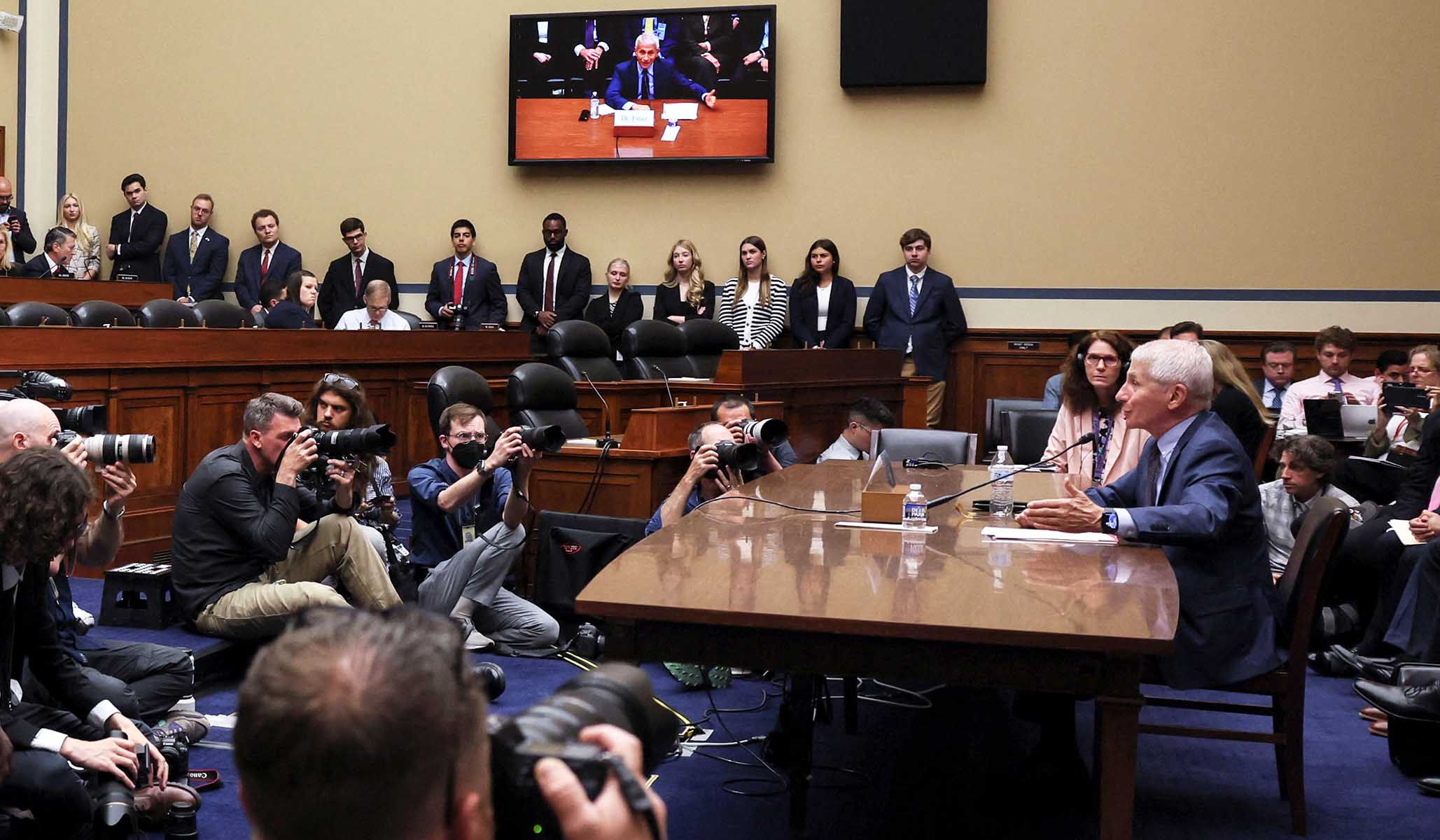
It should be bigger news that Dr. Anthony Fauci has admitted that social-distancing guidelines — mandatory in many areas of the country during the pandemic, with non-compliant schools, businesses, and even churches shuttered — “sort of just appeared.” Likewise, there should have been a backlash after Fauci confessed that the public-health establishment misled the public about the efficacy of masking, and after he decided to use arbitrary “herd immunity” thresholds as a vehicle to manipulate the public into behaving in ways he found advantageous. These bombshells washed over the country, in part, because the arbiters of national political discourse were and, in some ways, remain more invested in Fauci as a symbol of elite technocracy than in the public well-being his imperiousness was meant to serve.
At the pandemic’s outset, the onetime director of the National Institute of Allergy and Infectious Diseases became in the minds of his admirers the physical manifestation of “the Science.” But there was nothing dispassionate or empirical about the hagiography to which the immunologist was treated. His face was plastered across cupcakes and novelty socks. It adorned prayer candles and duvet covers. “In Fauci we trust,” the idolatrous T-shirt slogan read. His deification was unctuous, but its unctuousness served a purpose.











